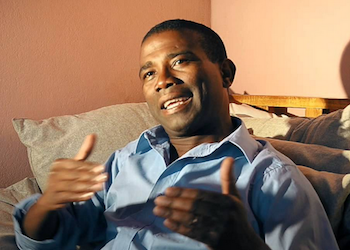A senator-elect from Haiti pleaded guilty in a US federal court to money laundering charges, raising the question of whether or not he will provide information on other Haitian elites suspected of involvement in criminal activities.
Guy Philippe pleaded guilty to one count of conspiracy to commit money laundering in connection with payments received as a result of drug sales that occured in the United States between the late 1990s and early 2000s, US authorities announced on April 24.
Philippe worked as a high-profile police officer in Haiti from 1997 and 2000. He has admitted to using his position to protect drug shipments arriving into the country, and said that he received between $1.5 and $3.5 million in bribes from traffickers between June 1999 and April 2003.
Philippe also said he shared part of the bribes with other corrupt members of the police forces to ensure protection for the drug shipments, and that he used part of his payments to purchase a property in Florida and support himself and his family in the United States.
Philippe has played a key role in his country’s political history. He reportedly planned a coup against Haiti’s then-President René Préval in 2000, but was forced to flee to the Dominican Republic. In 2004, he took part in an attempted coup against Préval’s successor, Jean-Bertrand Aristide.
Philippe was indicted on drug charges in the United States in 2005, and US authorities attempted to capture him for years without success.
In November 2016, the former policeman was elected senator in the Haitian province of Grand Anse. However, on January 5, 2017, only four days before being sworn in as senator, Philippe was captured and extradited to the United States where he initially pleaded not guilty to drug trafficking and money laundering charges.
Philippe will be sentenced in Miami on July 5, 2017. He faces up to twenty years in prison.
InSight Crime Analysis
The fact that Philippe was able to escape authorities for a decade and was even elected senator while drug charges were outstanding against him speaks volumes about the difficulties facing Haitian authorities attempting to bring high-profile criminals to justice. And it also raises questions as to whether the senator-elect will provide information on other criminal suspects.
To be sure, Philippe is not the only Haitian politician to have come under the spotlight for actual or alleged criminal activities. Another senator elected in November 2016, Wilfrid Gelin, has been accused of changing his name to hide a US guilty plea for smuggling undocumented migrants into the United States, reported the Miami Herald.
SEE ALSO: Coverage of Elites and Organized Crime
Accusations of money laundering have also been lodged against current President Jovenel Moïse. On January 20, Judge Brédy Fabien requested executives of the state-owned Banque Nationale de Crédit (BNC) to testify about one of the president’s bank accounts, in an effort to more carefully examine large and seemingly suspicious transactions to the president’s account. President Moïse has dismissed the money laundering accusations.
Given his known ties to drug traffickers and other potentially corrupt Haitian elites, Philippe may be in a position to reveal information to US authorities about those actors. However, details of the conditions under which Philippe agreed to plead guilty have not been made public, so it is unclear whether he struck a deal with prosecutors that would require his cooperation on such matters.

